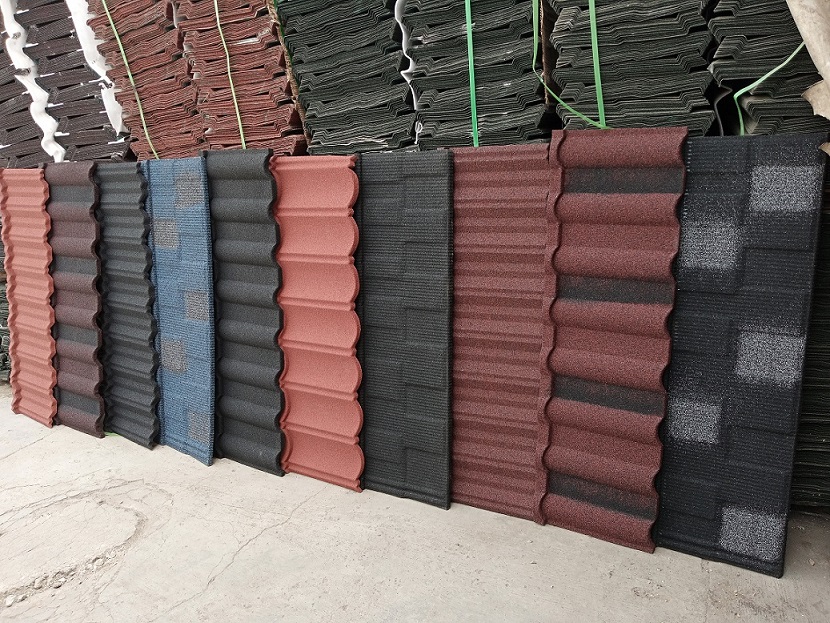
Stone-coated roof tiles are a type of roofing material that combines the durability of steel with the aesthetic appeal of various stone finishes. These tiles are typically made from galvanized steel or aluminum, which is then coated with a layer of stone chips or granules. The stone coating provides not only an attractive appearance but also additional protection against the elements. Here are some key features and considerations for stone-coated roof tiles:
Materials:
Advantages:
Installation:
Cost:
Weight:
Energy Efficiency:
Manufacturer Warranty:
Local Building Codes:
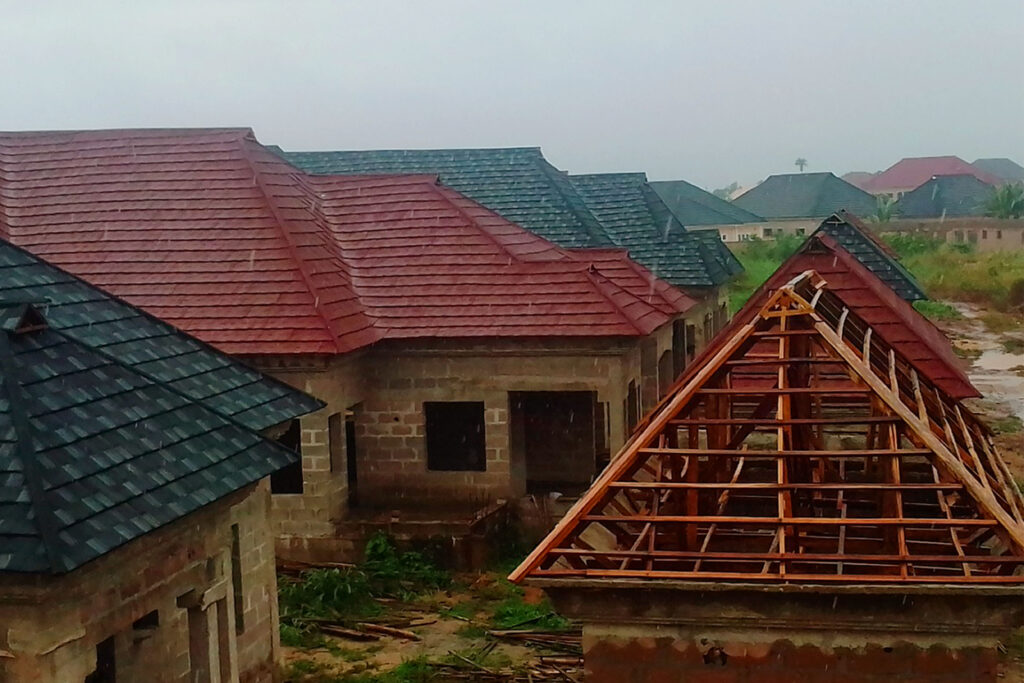
At Authentic Roofing Tiles (Bamaco Aluminium Company) we understand that a solid and well-installed roof is not just a structural necessity but a crucial investment in the protection and longevity of your property. With years of expertise in the roofing industry, we are your trusted partner for all your roof installation needs.
Excellence in Craftsmanship: At At Authentic Roofing Tiles (Bamaco Aluminium Company), we take pride in our commitment to delivering unmatched craftsmanship in every roofing project. Our experienced and skilled team ensures that each installation is executed with precision, attention to detail, and adherence to the highest industry standards.
Quality Materials: We believe in the power of quality materials to create roofs that withstand the test of time. Our partnerships with leading suppliers ensure that we use only the finest roofing materials, providing durability, resilience, and aesthetic appeal to your property.
Customized Solutions: Recognizing that every property is unique, our roof installation services are tailored to meet your specific needs and preferences. Whether you’re considering traditional asphalt shingles, metal roofing, or any other material, we work closely with you to find the perfect solution for your project.
Transform your home with a new roof that not only enhances curb appeal but also provides reliable protection for your family. From design consultation to the final installation, we prioritize quality and customer satisfaction.
For businesses and commercial properties, we offer tailored roofing solutions that address the unique challenges of larger structures. Our goal is to deliver a long-lasting, low-maintenance roofing system that adds value to your commercial investment.
Collaborate with us on new construction projects to ensure that your property starts with a strong and dependable roofing foundation. Our expertise extends to working seamlessly with builders and contractors to meet project timelines and specifications.
Ready to elevate your property with a new roof installation? Contact At Authentic Roofing Tiles (Bamaco Aluminium Company) today. Our friendly and knowledgeable team is here to answer your questions, provide expert advice, and schedule a consultation to assess your roofing needs.
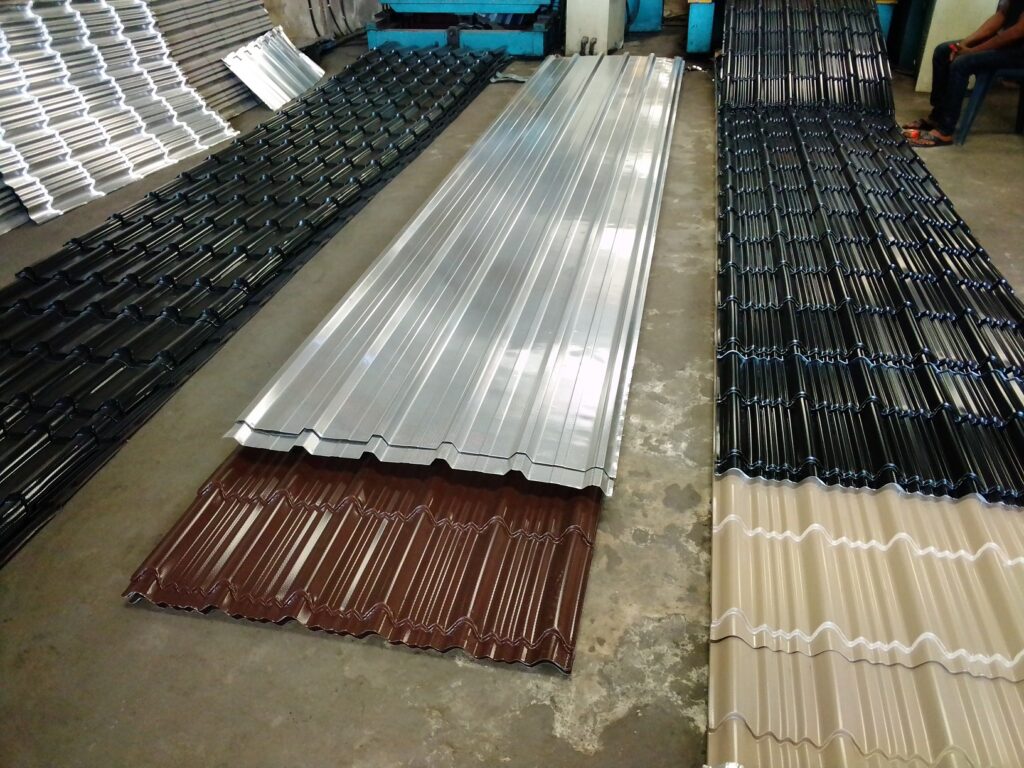
Aluminum roofing sheets are a popular roofing material known for their lightweight nature, durability, and resistance to corrosion. They are commonly used in residential, commercial, and industrial construction. Here are some key features and considerations regarding aluminum roofing sheets:
Material Composition:
Advantages:
Types of Aluminum Roofing Sheets:
Coatings:
Colors and Finishes:
Installation:
Maintenance:
Cost:
Fire Resistance:
Local Regulations:
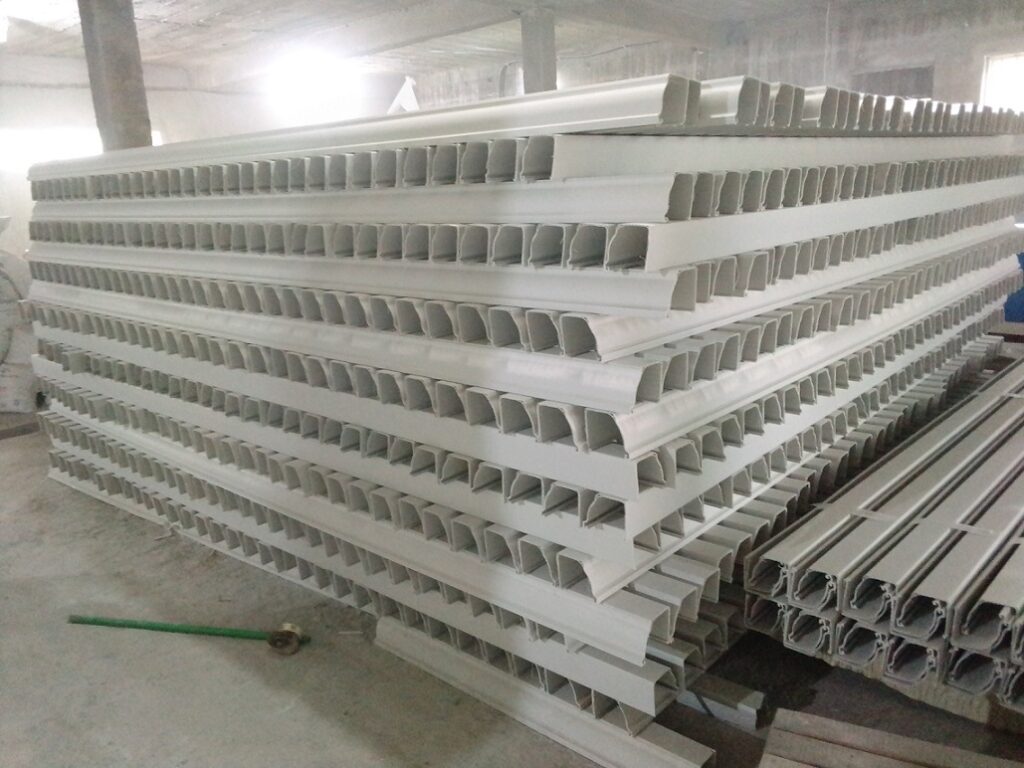
PVC pipes and gutters are commonly used in roofing systems for the efficient collection and drainage of rainwater. Here’s how PVC pipes and gutters are typically utilized in roofing applications:
Downspouts:
Conduit for Wiring:
Vent Pipes:
Rainwater Harvesting Systems:
Gutter Types:
Gutter Sizes:
Gutter Guards:
Installation:
Expansion Joints:
Connectors and Accessories:
Slope and Alignment:
Durability:
Lightweight:
Weather Resistance:
Low Maintenance:
Affordability:
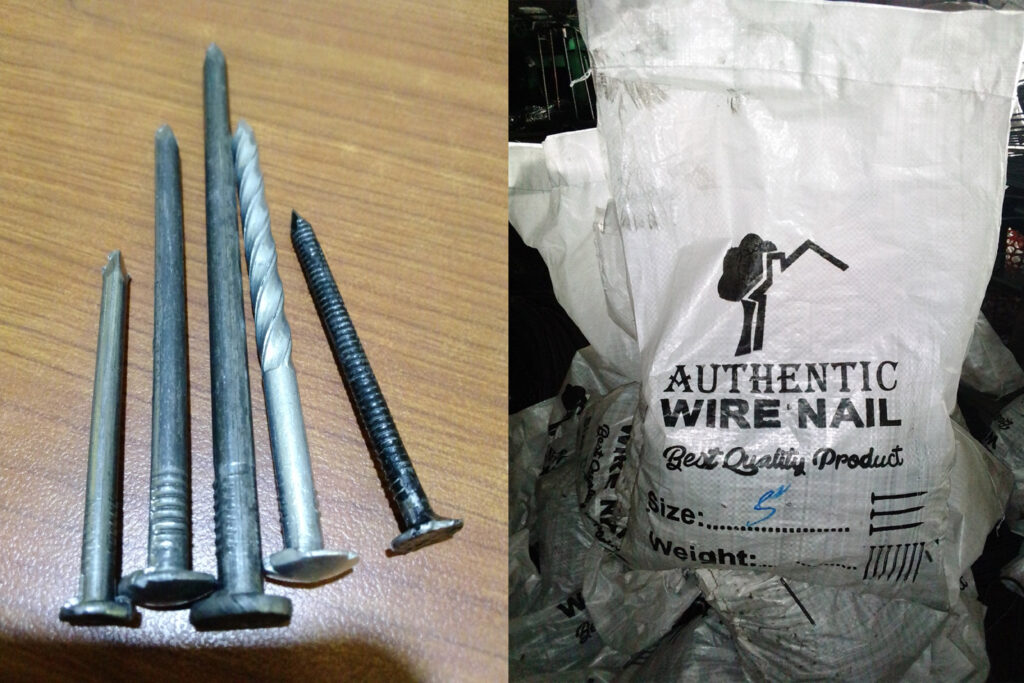
Roofing and carpentry nails are essential components in construction, used for fastening various materials in roofing and carpentry projects. Here’s a brief overview of these types of nails:
Material:
Types:
Head Types:
Length:
Application:
Material:
Types:
Head Types:
Length:
Application:
Corrosion Resistance: Depending on the application and exposure to the elements, corrosion-resistant coatings or materials may be essential.
Local Building Codes: Always check local building codes and requirements to ensure the use of the correct nails for specific applications.
Quality: Choose high-quality nails suitable for the intended purpose to ensure a secure and durable construction.

We install, sell/supply quality roofing material such as Stone Coated Roof, Aluminium Roofing Sheet and Rain Water Collector.


We carefully consider the following processes in production Durability, weather-resistant, and suitable for protecting structures from the elements.
<p>The frequency of roof repairs depends on several factors, including the age and condition of the roof, the quality of the initial installation, the local climate, and the level of maintenance the roof receives.</p>
<p>The duration of a roof repair can vary widely depending on several factors, including the extent of the damage, the type of repair needed, weather conditions, and the size and complexity of the roof.</p>
<p>The frequency of roof repairs depends on several factors, including the age and condition of the roof, the quality of the initial installation, the local climate, and the level of maintenance the roof receives.</p>